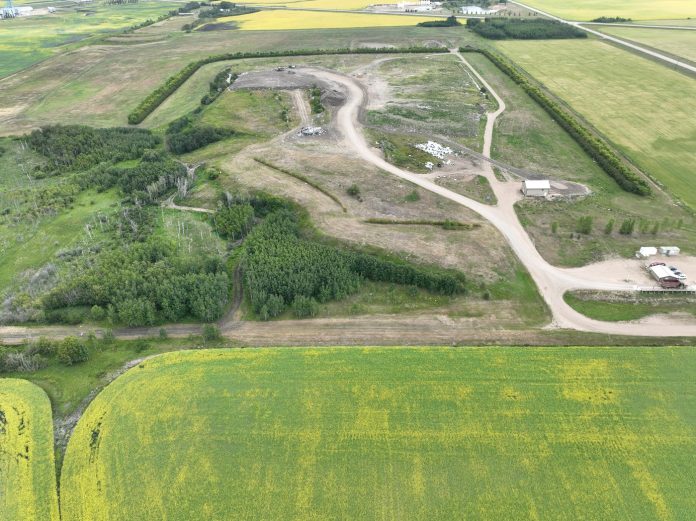
Nicole Goldsworthy, Local Journalism Initiative Reporter, SASKTODAY.ca
The City of Melfort is currently in the process of decommissioning a landfill cell and planning on building a new one.
“The City of Melfort’s landfill dates to the early 1940s and has seen many changes over those years,” said Lydia Steffon, director of public works. “A condition of the permit to operate a landfill is that we must complete and maintain an operations plan submitted annually to the Ministry [of Environment].”
At the Dec. 11 council meeting, Steffon reported the operating permit for the Melfort Landfill expired on Sept. 1, 2023. After the landfill inspection earlier this year, it was confirmed by the Ministry of Environment that the current cell was reaching capacity.
The City of Melfort has hired Tetra Tech for Engineering Services for the new cell.
“Historically landfills went unmonitored, but today landfills are regulated,” Steffon said. “The city must go through several permit approval steps to safely operate our landfill. A condition of the Permit to Operate a landfill, is that we must complete and maintain an operations plan submitted annually to the Ministry. The Ministry of Environment inspects our landfill to ensure compliance with the permit conditions and government regulations.”
All the surrounding RMs and communities that do not have their own landfill rely on bringing their garbage to the Melfort landfill. There are customers from communities more than 100 km away.
The Ministry of Environment regulates 354 operating solid waste management facilities. This includes 112 municipal waste landfills, 14 industrial landfills, 224 transfer stations, two composting facilities and two municipal land farms.
The Ministry of Environment said, “Since 2015, approximately 370 landfills have closed or been discovered closed, bringing the current total to 575 closed landfills in the province.”
Modern landfills are typically built using a series of excavated areas or “cells” where the cell is a single, waste-holding unit within a larger landfill property. Each landfill needs a unique cell design for the site’s conditions with engineered controls in place to protect the surrounding environment Steffon said. Building the cells in series allows for a segmented approach creating more opportunities for control to prevent collapses and liquid waste seeping into the ground.
Everything from the projected amount of settling to the annual rainfall on our site affects the design. Modern landfills are built using a layering system designed to safely isolate waste and monitor any byproducts, leaks, and anything else that can harm the environment, Steffon said.
After a landfill cell has reached its capacity, the Ministry has specific regulations in place that requires proper closure and decommissioning to protect the environment from potential contamination. The Ministry requires communities to monitor these closed cells and keeps a public inventory of closed landfills and impacted sites. This is the stage the City of Melfort has currently entered.
“A recent assessment has determined that our existing cell is nearing the end of its life, based on past disposal quantities, it is estimated that we have less than two years use remaining of our current cell.”
Steffon said the City has procured the services of a consulting engineer to help prepare for the decommissioning of our existing cell and help facilitate the design and construction of a new engineered cell.
The new cell will be located adjacent to the existing cell on the landfill property. The City of Melfort’s goal is to work together with the Ministry and our engineering consultant to ensure the transition from the old cell to the new cell is achieved within a timely manner with minimal disruption to waste collection activities Steffon said.
“An opinion of probable cost for the suggested scope of work, will be provided to Council following our meeting with the Ministry of Environment and further discussions with Tetra Tech regarding requirements and design needs. Costs will be proposed in the 2024 budget.”

